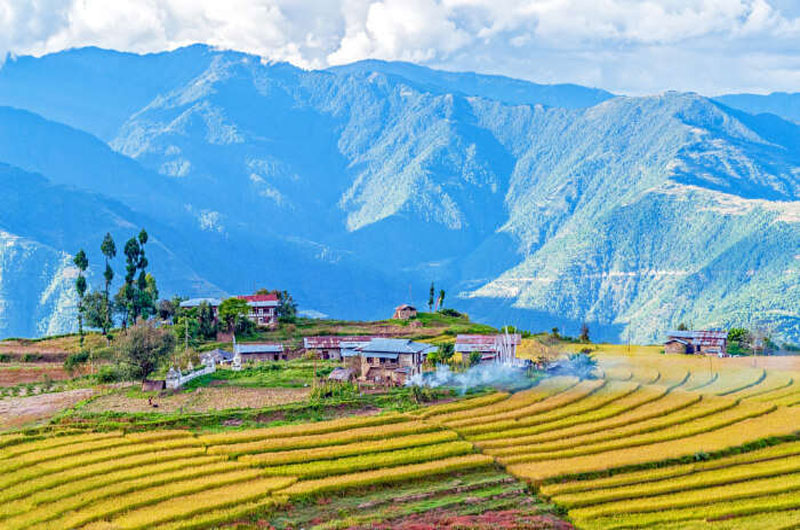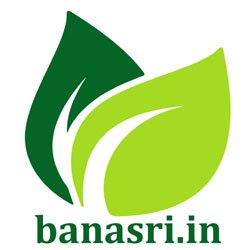
Trashigang: Bhutan’s Cultural Gem and Eastern Frontier
Perched in the easternmost region of Bhutan, Trashigang is a vibrant town renowned for its rich cultural heritage, strategic significance, and picturesque landscapes. Often regarded as the gateway to eastern Bhutan, Trashigang offers a unique blend of historical charm, natural beauty, and traditional Bhutanese culture. This guide will explore the various aspects of Trashigang, including its tourism specialties, historical significance, nearby attractions, and practical travel tips to ensure a memorable visit.
Tourism Specialty and Locality
Discovering the Charms of Trashigang
Trashigang is celebrated for its distinctive cultural and geographical features, making it an intriguing destination for travelers exploring Bhutan’s eastern region.
- Cultural Heritage: Trashigang is known for its rich cultural tapestry, deeply rooted in traditional Bhutanese customs and practices. The town is a melting pot of diverse cultures, with festivals, local crafts, and traditional performances reflecting its vibrant heritage.
- Strategic Location: Located at the confluence of the Drangme Chhu and Gamri Chhu rivers, Trashigang serves as a key trade and administrative center in eastern Bhutan. Its strategic position makes it an important gateway for travelers and traders moving between Bhutan and neighboring regions.
- Scenic Beauty: The town is surrounded by rolling hills, terraced fields, and dense forests, offering breathtaking views and opportunities for outdoor activities. The picturesque landscape adds to the charm and appeal of Trashigang, attracting nature enthusiasts and photographers alike.
Nearby Tourist Spots
Exploring Attractions in and Around Trashigang
Trashigang’s location provides easy access to several fascinating tourist spots, each offering unique experiences and scenic beauty.
- Trashigang Dzong: The Trashigang Dzong is one of Bhutan’s largest and most impressive fortresses, dating back to the 17th century. The dzong, strategically situated on a hill overlooking the town, serves as an administrative and religious center. Visitors can explore its grand architecture, intricate murals, and panoramic views of the surrounding landscape.
- Rangjung: Approximately 30 km from Trashigang, Rangjung is a small town known for its serene environment and traditional Bhutanese culture. The town is home to the Rangjung Woesel Choeling Monastery, which offers insights into Bhutanese spirituality and monastic life.
- Tashiyangtse: About 50 km from Trashigang, Tashiyangtse is renowned for its picturesque landscapes and cultural landmarks. The town is famous for its traditional Bhutanese crafts, including handmade paper and intricate weaving. The Chorten Kora, a significant stupa in the area, attracts visitors with its spiritual significance and architectural beauty.
- Kanglung: Located around 45 km from Trashigang, Kanglung is known for its scenic views and educational institutions. The town is home to the Sherubtse College, one of Bhutan’s premier higher education institutions. Kanglung offers opportunities for peaceful walks and exploration of local culture.
History of Trashigang
Unraveling the Historical Significance of Trashigang
Trashigang’s history is a testament to its strategic importance and cultural evolution over the centuries. The town has played a pivotal role in Bhutan’s historical and political landscape.
- Historical Background: Trashigang was established in the 17th century during the reign of Zhabdrung Ngawang Namgyal, the founder of modern Bhutan. The construction of the Trashigang Dzong was a significant milestone in the town’s history, serving as both a fortress and administrative center to consolidate Bhutanese power in the eastern region.
- Cultural Evolution: Over the centuries, Trashigang has evolved into a vibrant cultural hub, reflecting the rich traditions and customs of eastern Bhutan. The town has maintained its cultural heritage while adapting to modern changes, creating a unique blend of historical and contemporary influences.
- Strategic Importance: Trashigang’s location at the confluence of major rivers and its proximity to the Indian border have made it a crucial trade and transit center. The town’s strategic significance has contributed to its development as a key administrative and economic hub in eastern Bhutan.
Best Time to Visit
Choosing the Ideal Time for Your Visit to Trashigang
The best time to visit Trashigang depends on your preferences for weather and activities. The town’s climate varies throughout the year, offering different experiences depending on the season.
- Spring (March to May): Spring is an excellent time to visit Trashigang, with pleasant temperatures ranging from 15°C to 25°C. The weather is mild, and the blooming flora enhances the town’s natural beauty. Spring is ideal for outdoor activities, sightseeing, and exploring the town’s cultural landmarks.
- Summer (June to August): Summer brings warmer temperatures ranging from 20°C to 30°C, along with the monsoon rains. While the rains can create lush landscapes, they may also lead to occasional travel disruptions. Summer is suitable for those who enjoy the verdant scenery and don’t mind the rain.
- Autumn (September to November): Autumn is a favorite time for travelers, with clear skies and temperatures ranging from 15°C to 25°C. The weather is generally stable, making it perfect for sightseeing and exploring Trashigang’s attractions.
- Winter (December to February): Winter in Trashigang is cooler, with temperatures dropping to around 10°C. The crisp, clear weather offers a serene atmosphere, but it may not be ideal for those who prefer warmer temperatures. Winter is a great time for peaceful exploration and enjoying the clear views.
Nearby Restaurants and Hotels
Dining and Accommodation Options in Trashigang
Trashigang offers a range of dining and accommodation options, ensuring a comfortable and enjoyable stay for visitors.
Top Restaurants
- Kanglung Restaurant: Located in the town center, Kanglung Restaurant offers a variety of Bhutanese and Indian dishes. Known for its friendly service and flavorful food, it’s a popular spot for both locals and travelers.
- Trashigang Hotel Restaurant: This restaurant provides traditional Bhutanese cuisine with a focus on local ingredients. The restaurant’s cozy ambiance and authentic dishes make it a great choice for enjoying local flavors.
- Dewathang Restaurant: Situated near the town’s main attractions, Dewathang Restaurant offers a range of Bhutanese and international dishes. The restaurant’s relaxed setting and diverse menu cater to different tastes and preferences.
Best Hotels
- Hotel Tashi Yang: This hotel offers comfortable rooms with modern amenities and traditional Bhutanese decor. Its central location makes it convenient for exploring Trashigang and its surrounding attractions.
- Druk Hotel Trashigang: Located in the heart of the town, Druk Hotel provides well-appointed rooms and a range of services for travelers. The hotel’s proximity to local landmarks and dining options adds to its appeal.
- Hotel Yangkhil: Situated on the outskirts of Trashigang, Hotel Yangkhil offers a blend of traditional and contemporary comforts. The hotel’s serene setting and attentive service contribute to a pleasant stay.
Conclusion
Trashigang, with its rich cultural heritage, strategic significance, and scenic beauty, offers a unique and immersive experience for travelers exploring Bhutan’s eastern frontier. From its historic dzong and vibrant markets to the surrounding natural wonders and traditional crafts, Trashigang presents a captivating blend of experiences. Whether you’re drawn to its historical landmarks, scenic landscapes, or cultural richness, Trashigang promises a memorable and enriching journey in the heart of Bhutan.
